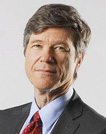 Jeffrey Sachs
Jeffrey Sachs
NEW YORK – If the world is to solve the climate-change crisis, we will need a new approach. Currently, the major powers view climate change as a negotiation over who will reduce their CO2 emissions (mainly from the use of coal, oil, and gas). Each agrees to small “contributions” of emission reduction, trying to nudge the other countries to do more. The United States, for example, will “concede” a little bit of CO2 reduction if China will do the same.
For two decades, we have been trapped in this minimalist and incremental mindset, which is wrong in two key ways. First, it is not working: CO2 emissions are rising, not falling. The global oil industry is having a field day – fracking, drilling, exploring in the Arctic, gasifying coal, and building new liquefied natural gas (LNG) facilities. The world is wrecking the climate and food-supply systems at a breakneck pace.
Second, “decarbonizing” the energy system is technologically complicated. America’s real problem is not competition from China; it’s the complexity of shifting a $17.5 trillion economy from fossil fuels to low-carbon alternatives. China’s problem is not the US, but how to wean the world’s largest, or second largest economy (depending on which data are used) off its deeply entrenched dependence on coal. These are mainly engineering problems, not negotiating problems.
To be sure, both economies could decarbonize if they cut output sharply. But neither the US nor China is ready to sacrifice millions of jobs and trillions of dollars to do so. Indeed, the question is how to decarbonize while remaining economically strong. Climate negotiators cannot answer that question, but innovators like Elon Musk of Tesla, and scientists like Klaus Lackner of Columbia University, can.
Read the full article at Project Syndicate











